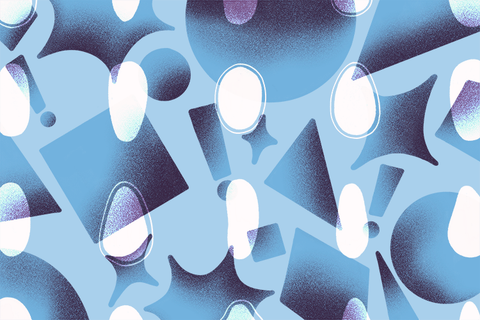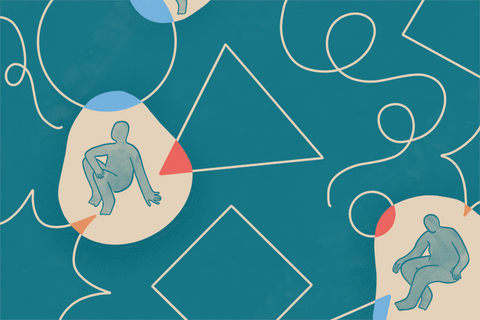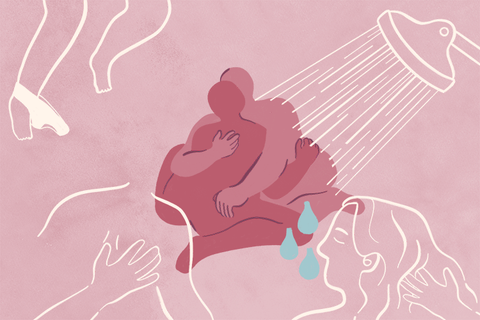Here’s What It Means To Have Vulvodynia Or Vaginismus
Anyone who grew up watching Sex and the City will recall the episode in which Charlotte was diagnosed with a depressed vagina.
Itching, stinging, and burning had led her to the gynaecologist’s table, where a friendly but blunt doctor advised her that there were many other women in New York with the same symptoms.
She suspected they all had the same thing: vulvodynia.
“Is it serious? Charlotte asked.
“No,” the doctor said. “It’s mostly just uncomfortable. We can get it under control.”
By the next episode it was under control, and we can assume Charlotte’s vagina recovered from its depression and lived happily ever after.
But that’s not quite how things work in the real world.
Vulvodynia, vaginismus, and other chronic pain conditions can cause real, long-lasting pain for those who experience them.
One person living with vaginismus describes it like this:
“The barest touch with a cotton swab feels like the tip of a sharp knife, or a dozen bee stings, or a burning poker searing into the most sensitive part of myself”.
Some healthcare providers still don’t take vulvar and vaginal pain seriously, so many people find it difficult to receive the help they need.
And the conditions themselves can be kind of mysterious—what are the symptoms? And how do we know if we might have vulvodynia?
Today we’re going to find out.
A quick definition rundown
There are a few words you’ll hear used to describe pain in and around the vulva and vagina. Here’s what they all mean.
- Vulvodynia refers to pain that occurs on and around the vulva. It might feel like a burning or stinging, and it might occur in just one place or across the whole vulva. According to the Royal Women’s Hospital, people with vulvodynia have a ‘normal-looking’ vulva—there are no visible signs of irritation or injury. If there are, this could mean the pain is caused by something other than vulvodynia.
- Vestibulodynia is pain that occurs around the vestibule, which is the area around the opening of the vagina. Unlike vulvodynia, vestibulodynia is specific to this area. The Royal Australian College of General Practitioners (RACGP) says it can also be described as localised provoked vestibulodynia if it happens when you move or touch yourself in a certain way that ‘provokes’ the pain, like putting in a tampon or riding a bike; and localised unprovoked vestibulodynia if it happens without any touch or movement.
- Vaginismus is difficulty inserting anything into the vagina. People who try to insert fingers, tampons, toys, or penises might feel discomfort or pain when doing so; or they might feel like they’re ‘hitting a brick wall’. Academic news website The Conversation says this pain might feel like burning, cramping, or a tightening feeling. Sex coach Georgia Grace adds that there are two types of vaginismus: primary, which occurs with no vaginal penetration; and secondary, when vaginal penetration has occured in the past but is now no longer possible due to pain.
- Dyspareunia is the feeling of pain in the vagina during sexual penetration. Jean Hailes notes that dyspareunia can be caused by many things, some temporary and some more permanent. Not using enough lube during penetration can cause dyspareunia, as can stress, nerve damage, and vaginismus. Dyspareunia is a symptom rather than a condition, but this word is used often when discussing vulvar pain so we thought it was an important one to define.
What causes it?
There are many things that are thought to cause all of these conditions—but unfortunately there’s no one proven cause, which can make vulvar and vaginal pain difficult to diagnose and treat.
Sometimes pain can be caused by things that are easier to spot, like injury or infection.
Candidiasis, bacterial vaginosis, and genital herpes can all cause pain in the vulva and vagina.
Childbirth can cause trauma to the area that results in pain, as can fissures and tears around the base of the labia. And nerve damage has also been suggested by the RACGP as a cause of vulvodynia.
But there can also be mental, emotional, and psychological roots to the pain.
People who’ve experienced trauma around penetration may find that they experience vulvar or vaginal pain due to a learned fear of penetration, says sex coach and author Georgia Grace.
The RACGP cites a case study involving a woman who experienced localised provoked vestibulodynia and was treated with a combination of physiotherapy, antidepressants, and sessions with a clinical psychologist.
What causes your pain might be totally different to what causes someone else’s pain.
The causes of vulvar and vaginal pain can be so varied from person to person that it’s impossible to say it’s all likely caused by the same thing.
But what we do know is that even if pain is caused by past trauma, it’s not imaginary—it’s real, and it is treatable.
How is it diagnosed and treated?
As pain can have so many different causes, there’s no ‘one size fits all’ treatment available.
The RACGP advises that common treatments can include physiotherapy, medication, topical numbing treatments, mindfulness techniques, and counselling.
People experiencing pain are also told to keep their vulva and vagina free from any irritants like soap, fabric softener, and fragrance, which is good advice for all of us!
“Doctor Google is not your answer,” says Georgia, adding that you need to see a medical professional to be diagnosed.
“Though there are a few symptoms you can keep an eye out for: vaginal muscles involuntarily or persistently contracting; inability to be penetrated by anything such as a finger, penis, tampon, or vibrator; or painful penetrative sex."
“If you’re experiencing painful or uncomfortable penetration, seek professional support. Sex should not be painful.”
And although the cause of the pain may be unclear initially, speaking with a doctor can help you figure out what may be behind it, and start on the road to recovery.
To learn more about the foundations of great sex with acclaimed sex coach Georgia Grace, check out NORMAL's video masterclass, The Modern Guide To Sex.







